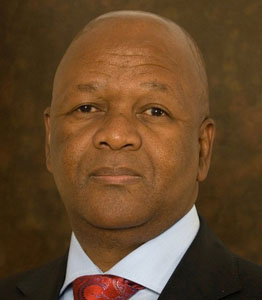Minister of Justice and Constitutional Development to deliver prestige lecture at the UFS
Minister Jeff Radebe, Minister of Justice and Constitutional Development, will deliver a lecture in the Prestige Series of the Dean in the Faculty of Law at the UFS on Access to Justice.
 Thursday 17 October 2013
Thursday 17 October 2013
18:00
CR Swart Auditorium, Bloemfontein Campus Please RSVP before or on Monday 14 October 2013 to Aldi Lombard, +27(0)51 401 2319 or
lombarda1@ufs.ac.za.
We kindly refer you to the short CV of Jeffrey Thamsanqa Radebe.
Radebe holds a BIuris degree from the University of Zululand obtained in 1976; LLM in International Law from Leipzig University obtained in 1981. He also studied at the Lenin International School, Moscow, in 1985.
Radebe became a student activist and joined the underground structures of the African National Congress (ANC) during the student uprisings in 1976. He was active in the organisation and was arrested and convicted under the Terrorism Act. He served his jail sentence on Robben Island. After his release in 1990, he held several leadership positions within the ANC and the South African Communist Party.
Following the democratic elections in 1994, Radebe held ministerial positions in the Departments of Public Works, Public Enterprises and Transport. In 2009 Radebe was appointed as Minister of Justice and Constitutional Development, a position that he currently still holds. Among his many achievements, Radebe received an honorary doctorate in Humane Letters from the Chicago State University in 1996.